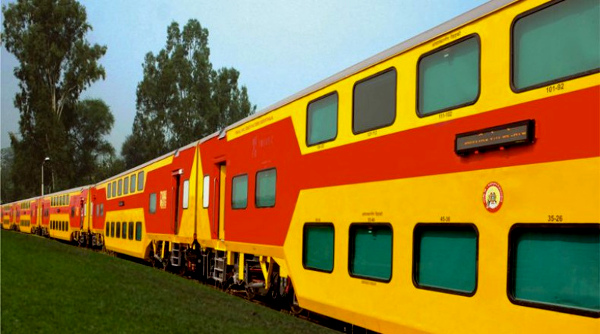The Indian Railways has installed 2,58,906 bio-toilets on all its long-distance trains at a cost of about Rs 1,500 core, which will significantly reduce filth and corrosion on its tracks, officials said.
It has installed the aircraft-style toilets in 73,078 coaches by the end of May, which will prevent around 2,74,000 litres of human excreta and waste from being litterred on railways tracks. This is expected to save about Rs 400 crore a year in maintenance as human waste corrodes rails and fittings, a railway official said.
“Not only will the railways save money by not paying for the (railway) tracks to get cleaned but will also increase the lifetime of the tracks,” the official said.
The Indian Railways started installing the vacuum bio-toilets in 2019 after its earlier installed toilets were criticised for being no better than septic tanks.
The national carrier had spent nearly Rs 1,370 crore on 136,985 bio-toilets till 2019 before deciding to switch to bio-vacuum toilets.
The new bio-vacuum-toilets are dry toilets that treat human waste by a biological process called composting. They decompose human excretory waste in the digester tank converting it into methane gas, carbon dioxide, and water.
The new vacuum toilets have been designed by the Indian Railway along with the Defence Research Development Establishment (DRDE) and Research Design and Standard Organisation (RDSO).
Experts say the new human-waste disposal mechanism will also improve efficiencies in running trains.
“It is a terrible task trying to maintain tracks, fix faults, and detect technical failures amid the human excreta coupled with debris and muck lying on tracks,” a Mumbai-based analyst said, adding that faster track maintenance will improve the efficiency of trains.
The new toilets are also expected to save water on-board trains as a bio-vacuum toilet consumes around 500ml per flush while the earlier used toilets on average used 10 to 15 litres of water per flush, a Mumbai-based analyst said.
The Indian Railways is also planning to put sensors to prevent bio-toilets from getting clogged and also replace the P-trap pipe of the toilet with an S-trap pipe, which will be more effective in preventing clogging, the official said.
The newly installed vacuum-bio-toilets are susceptible to get choked as passengers dump cigarette butts, gutka pouches, plastic water bottles, plastic covers, liquor bottles, and food waste into it.
Source: Money Control
You may also like
-
Dot Simplifies Approval Processes For Telecom Licenses And Wireless Equipment
-
PM to Inaugurate SEMICON India 2024 on 11th September
-
Shri Piyush Goyal Sets 500 Million Tonnes Domestic Steel Production Target by 2034
-
NHAI to Track Around 100 Toll Plazas with GIS-Based Software for Seamless Movement of Traffic at National Highways
-
“Marching Towards Building A Digitally Connected Bharat and An Atmanirbhar Telecom Sector”: Union Minister Jyotiraditya Scindia
